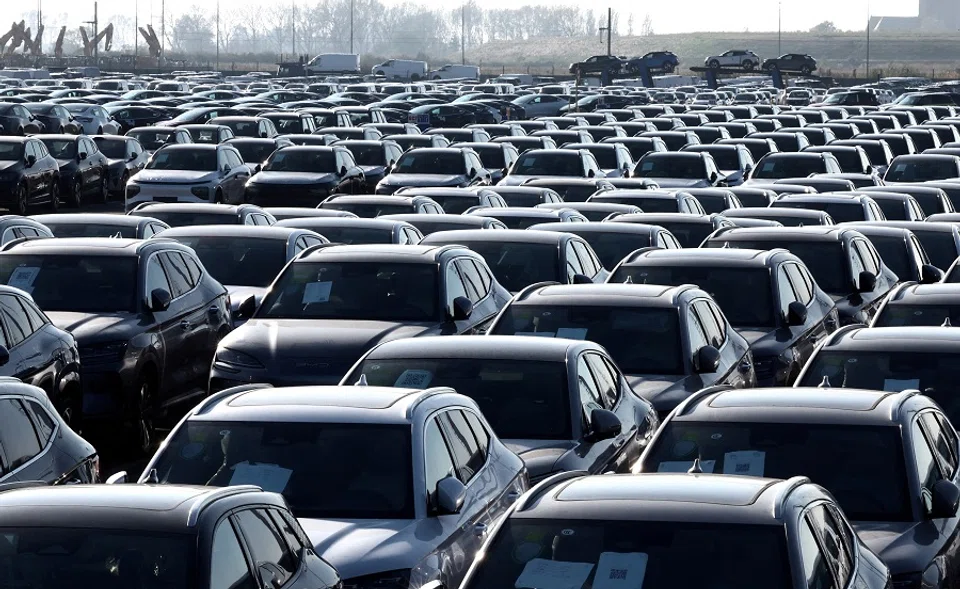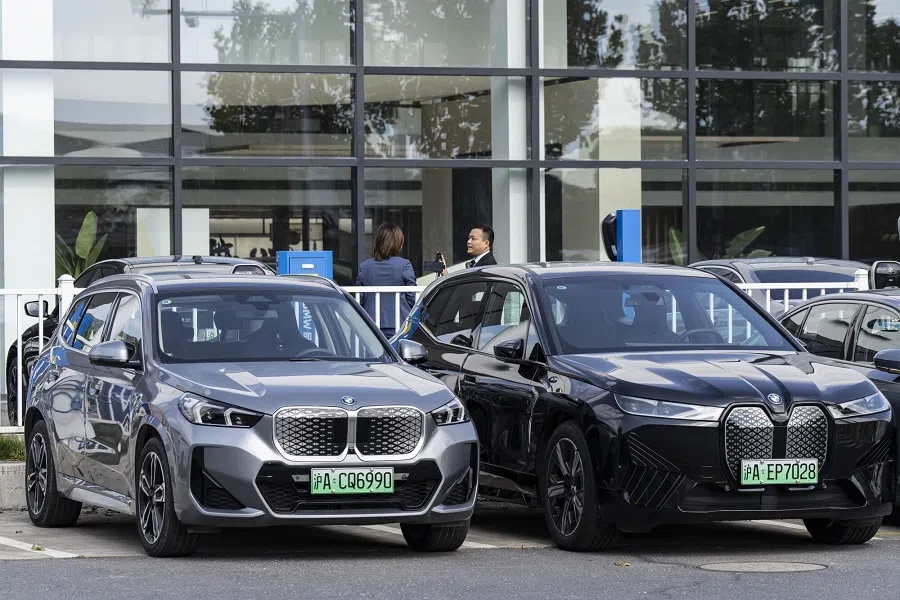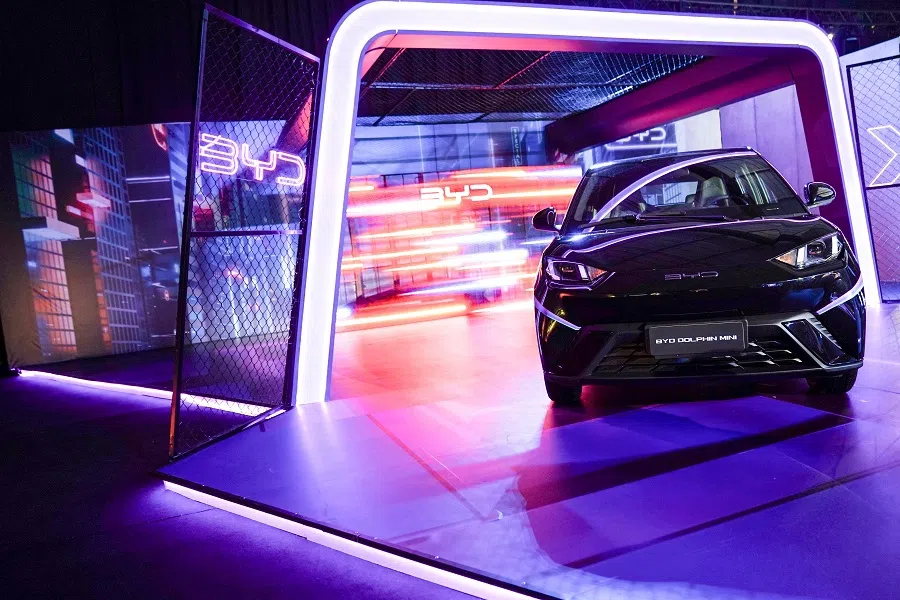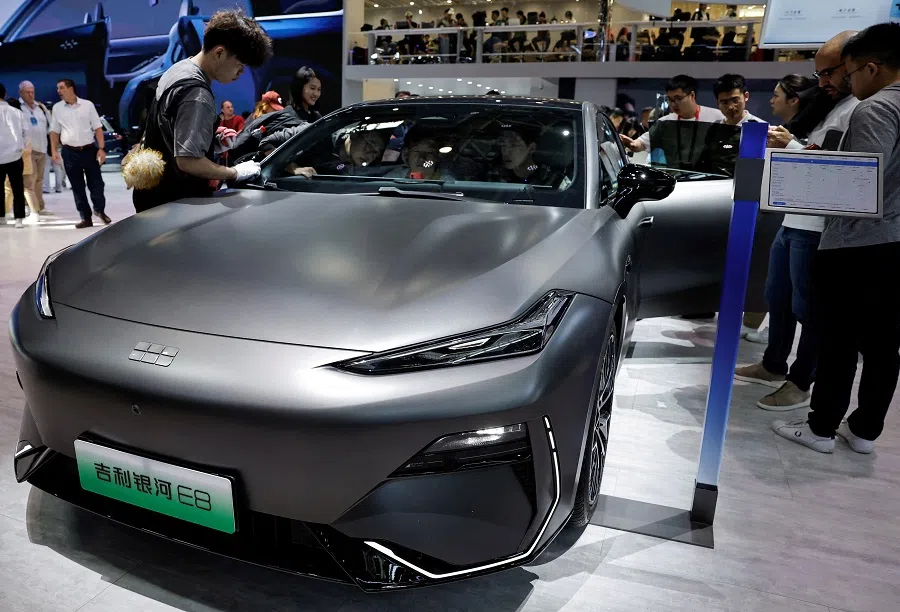Are German automakers the next Nokia? The rise of Chinese EVs
As Chinese automakers start to make their mark, German automakers as traditional industry leaders are feeling the heat as they lose ground in the China market. How can they remain relevant in a challenging environment? Lianhe Zaobao journalist Evon Wong reports.

German automakers Mercedes-Benz, BMW and Volkswagen have dominated the market for internal combustion engine cars for a century, but faced with the rise of new energy vehicles from China, their grip on the market seems to be slipping as they head the way of another former industry leader, Nokia.
In an interview with Lianhe Zaobao, Fu Fangjian, an associate professor of finance at Singapore Management University’s Lee Kong Chian School of Business, compared German automakers to Nokia, and Chinese electric vehicle (EV) manufacturers to Apple and Android smartphones.
Nokia was once the biggest name in mobile phones, but with the rise of iPhones and Android smartphones, Nokia was unable to compete and ended its mobile phone operations.
German car makers’ plunging sales
Fu said China has deftly responded to the demands of the times, opening up a different path of developing EVs, enabling them to overtake competitors still focused on conventional internal combustion engine (ICE) vehicles. However, he feels German brands “still have their strengths and will not be side-lined quickly, but they will decline gradually”.
In last year’s ranking of the world’s 40 top-selling car brands, Toyota, Volkswagen and Ford — all of which offer primarily ICE vehicles — came in first, second and third. EV-maker BYD came in at ninth, while Mercedes-Benz, BMW and Audi were ranked 11th, 12th and 14th.
Fu felt that while German and Japanese brands are still competitive in the global market, BYD is growing rapidly. If the trend continues, BYD will soon gain a sizeable share of the automotive market.
... German brands had a combined market share of only 15.9% in China in the first eight months of the year, down by 10.8% from the same period last year.

But while German vehicles are doing well in the global market, they are caught in fierce competition with homegrown automakers in China, the world’s largest auto market.
Volkswagen, BMW and Mercedes-Benz all saw sales plunge in the third quarter of the year in China. BMW saw the steepest decline of 30%, while Mercedes-Benz was down 13% and Volkswagen 15%. Data from MarkLines, which provides monthly forecast reports of the automotive industry, show that German brands had a combined market share of only 15.9% in China in the first eight months of the year, down by 10.8% from the same period last year.
If the current market situation in China is a microcosm of the global market, and Chinese consumer preferences are an indicator of global preferences, German automakers would have to be prudent in handling these challenges.
Forming partnerships with Chinese companies
Of course, the German companies are not resigned to their fate. Over the past years, German brands have also been launching EV products and announcing plans to go electric. Mercedes-Benz, for instance, previously announced its goal to sell only EVs by 2030. German carmakers are also putting aside their pride to form partnerships with Chinese enterprises — Volkswagen is working with Gotion High Tech to gain access to new battery technology, while Mercedes-Benz is working with Geely to produce EVs under its smart brand.
Fu said traditional automakers may have found it difficult to compete with China based on their own technology and high costs, so they have changed strategy to get a win-win outcome through investment, mergers and acquisitions, or buying a stake in Chinese companies. “Traditional car makers have over a century of experience, with an edge in engine and vehicle design, car seats and so on, and there is room for new EV makers to cooperate and learn.”
“China’s EVs have… advantages in terms of the use of new energy, and advanced information systems inside cars. Also, the labour costs in China are low. Hence, China’s EVs are competitive in price.” — Associate Professor Xie Ming, School of Mechanical and Aerospace Engineering, NTU
Challenges in going electric
While German companies possess a wealth of experience in automotive manufacturing, going electric remains challenging.
Victor Kwan, deputy director of the SUSS Academy and former managing director of Wearnes Automotive, said German brands just cannot match their Chinese rivals in terms of pricing and speed of new product development.
Xie Ming, an associate professor at the School of Mechanical and Aerospace Engineering at Nanyang Technological University (NTU), said in future, competitive advantages will come from the use of clean energy, advanced control systems and advanced information systems. “China’s EVs have… advantages in terms of the use of new energy, and advanced information systems inside cars. Also, the labour costs in China are low. Hence, China’s EVs are competitive in price.”

According to prices listed on the Autohome website in China, Volkswagen’s EV model ID.3 is priced at upwards of 130,000 RMB (US$18,160), while its direct rival, the BYD Dolphin is retailing at under 100,000 RMB. In Europe, the Dolphin has a price tag of 29,760 euros (S$42,580), almost twice of what it sells for in China. Costs have suppressed its price competitiveness.
Lee Poh Seng, an associate professor in the Department of Mechanical Engineering at the National University of Singapore (NUS), said the production lines and supply chains of German automakers are tailored to internal combustion engine vehicles, and transitioning to EVs requires significant retooling both in terms of technology and workforce skillsets.
Many consumers in China feel the information systems in German EVs are inferior to the systems in Chinese cars, which goes to show that German automotive engineers have fallen behind in software design and digital integration.
More importantly, traditional automakers need to adapt to new realities when it comes to vehicle design. Traditional ICE vehicles are feats of complex engineering, while the new connected EVs have been regarded as “computers on wheels” — this requires automotive engineers to double as systems engineers, and equip themselves with software and systems integration capabilities.
Many consumers in China feel the information systems in German EVs are inferior to the systems in Chinese cars, which goes to show that German automotive engineers have fallen behind in software design and digital integration. The shining reputation of “Made in Germany” and German quality seems to have dimmed.
Tariffs not an effective long-term strategy
The challenges faced by German automakers in China will soon spread to other markets around the world, because Chinese automakers have begun venturing into Europe, North America, Southeast Asia and other markets.

Faced with the aggressive wave of Chinese EVs, the US and Europe have decided on the protectionist measure of levying tariffs.
Anita Wolfl, an automotive industry specialist at the Ifo Institute for Economic Research at the University of Munich, said although the tariffs are directed at China, it is also detrimental to Western carmakers, because China could also adopt similar measures, which might set off a trade conflict.
“In the long term, German automakers will need to focus on innovation, cost reduction, and efficiency to maintain their competitive edge rather than relying on protectionist measures.” — Associate Professor Lee Poh Seng, Department of Mechanical Engineering, NUS
NTU’s Xie Ming said while high tariffs might win some time for Western automakers to catch up with Chinese EV makers, it is not a long-term solution.
Lee Poh Seng of NUS said tariffs do not address the fundamental issue that Chinese manufacturers rapidly improve their technology and scale their production, positioning themselves to compete globally regardless of tariffs. Moreover, Chinese automakers are increasingly considering overseas production to circumvent these barriers.
“In the long term, German automakers will need to focus on innovation, cost reduction, and efficiency to maintain their competitive edge rather than relying on protectionist measures.”
This article was first published in Lianhe Zaobao as “面对中国电动车崛起 德国车企“诺基亚化”?”.





![[Big read] When the Arctic opens, what happens to Singapore?](https://cassette.sphdigital.com.sg/image/thinkchina/da65edebca34645c711c55e83e9877109b3c53847ebb1305573974651df1d13a)